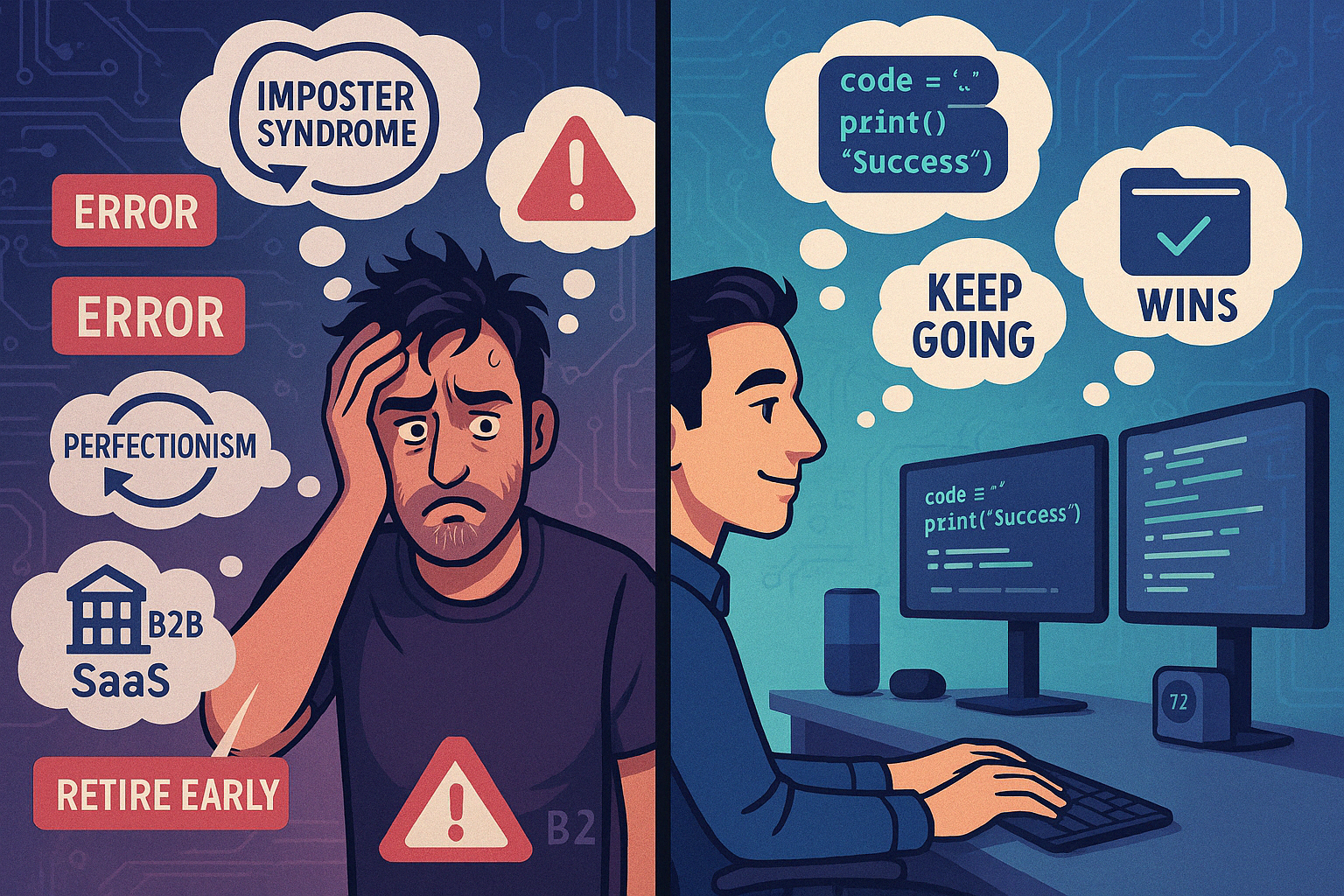Troubleshooting the Engineer's Brain

The engineering mindset is fantastic at finding edge cases and hunting bugs.
However, it often turns these same powers against you. Let’s look at how an engineer’s mindset can have too many unhandled exceptions.
Common Brain Bugs and Their Fixes
CODE REVIEW DEFENSIVENESS
Scenario: You receive several comments on your pull request and immediately feel a wave of shame and defensiveness.
Bug: Personalizing and catastrophizing—you treat feedback about your code as criticism of your worth and abilities.
Fix: Separate the code from your identity. Frame feedback as free education rather than criticism. Remember that perfect code doesn’t exist, and the most valuable reviews often contain the most comments.
IMPOSTER SYNDROME
Scenario: Despite solving complex problems regularly, you constantly worry about being “found out” as not smart enough for your role.
Bug: Discounting positives while magnifying perceived shortcomings, creating a persistent feeling of fraudulence.
Fix: Document your contributions objectively. Maintain a “wins” file with accomplishments and positive feedback. Recognize that imposter syndrome correlates with competence—the least skilled are often the most confident.
EXECUTIVE TERROR
Scenario: A senior leader comments on your document or joins a meeting where you’re presenting, triggering immediate panic.
Bug: Creating a hierarchy-based threat response that exists primarily in your mind.
Fix: Remember that intimidation is a choice. Everyone shares the same goal: doing what is best for the business. Their perspective might be valuable precisely because they see things differently. Try thinking: “Great, another perspective that could help build something better.” Hierarchies exist for coordination, not to create fear.
SLACK PANIC
Scenario: Your manager messages, “Do you have a moment to chat?” and your heart immediately races.
Bug: Catastrophizing—your mind automatically jumps to worst-case scenarios from minimal information.
Fix: When uncertainty triggers spiralling predictions, reduce the resources allocated to speculation. What concrete evidence supports the negative interpretation? Create three alternative, neutral explanations before responding.
RUMINATION LOOP
Scenario: You made a mistake in a meeting three days ago, and your mind keeps replaying the moment on repeat.
Bug: Your brain gets stuck in an infinite loop replaying past events or worrying about future scenarios.
Fix: When you catch yourself in recursive thought patterns that aren’t yielding new insights, break the circuit and redirect your thoughts to more productive tasks. Schedule a bounded 15-minute “worry time” where rumination is allowed, and then terminate those thoughts.
PERFECTIONISM PARALYSIS
Scenario: You delay submitting work because it doesn’t feel “ready” despite meeting all requirements.
Bug: Setting impossibly high standards and harshly judging yourself for not meeting them.
Fix: Define multiple service levels for your work: minimum viable product, target implementation, and ideal state. Ship when you reach the target, not when you get the ideal. Recognize that most systems improve through iterations, not endless pre-release polishing.
FILTERED THINKING
Scenario: You receive nine positive comments and one constructive criticism, but only remember the criticism.
Bug: Negative filtering—selectively focusing on negative information while filtering out positive data.
Fix: Consciously register positive events with the same attention you give negative ones. For every self-criticism, identify one thing you did effectively. After meetings or reviews, note what went well, not just areas for improvement.
Running a More Stable Mental System
Start by identifying your most frequent cognitive bugs, then consistently apply the patches. With practice, you’ll catch distortions earlier and recover faster, spending more energy on actual engineering problems rather than manufactured mental crises.
Your analytical mind is your greatest professional asset—once you stop it from running exploits against itself.